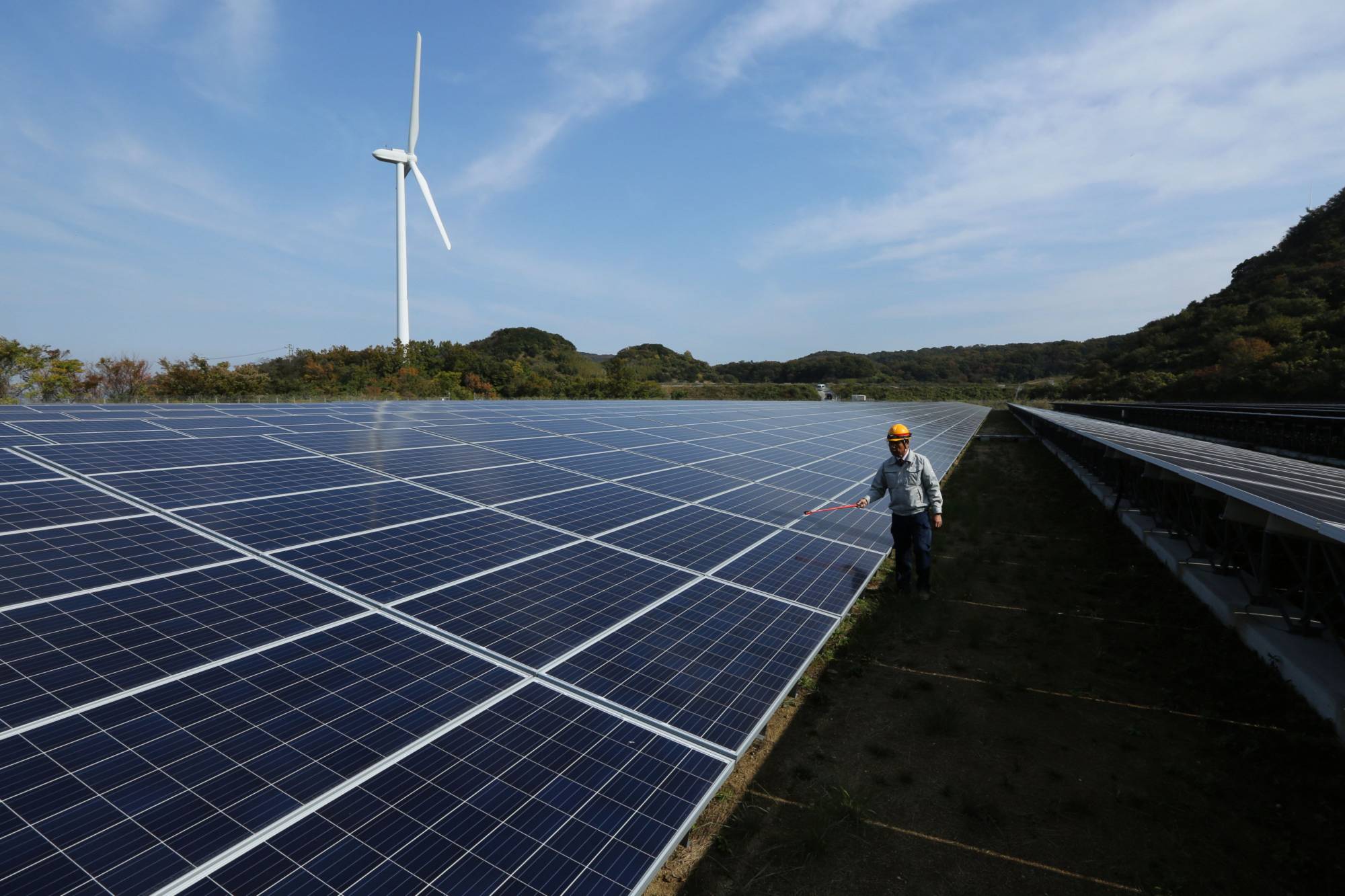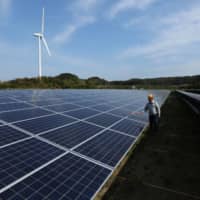To do its part to help avoid catastrophic climate change, Japan must significantly change its power mix between now and 2030, according to a report by the Asia Investor Group on Climate Change.
The country must lift the proportion of renewable energy in its generation to 50 percent, and nuclear to 20 percent, by 2030 to meet Paris Agreement goals of limiting global warming to 1.5 degrees Celsius, the group said in a policy statement released Monday. Japan must also halt the use of coal and gas for power generation between 2035 and 2040, it said.
Despite growing international pressure, Japan has yet to kick its reliance on coal, which generated nearly a third of its electricity in the year ended March, 2019. Under its basic energy policy set in 2018, Japan aims to raise its renewable ratio to 22 to 24 percent by 2030, and its nuclear ratio to 20 to 22 percent. A panel with the Ministry of Economy, Trade and Industry proposed in July the review of Japan’s long-term power mix targets should start next year with a focus on decarbonization.
Renewables represented 17 percent of the country’s total power generation in the year that ended in March, 2019. Natural gas generated 38 percent and nuclear 6.2 percent.
Climate change scenarios developed by the Network of Central Banks and Supervisors for Greening the Financial System (NGFS), which the AIGCC used in its analysis, suggest that achieving the Paris Agreement goals will require an additional $330 billion in annual investment up to 2050 across the entire Asian energy sector.




















With your current subscription plan you can comment on stories. However, before writing your first comment, please create a display name in the Profile section of your subscriber account page.